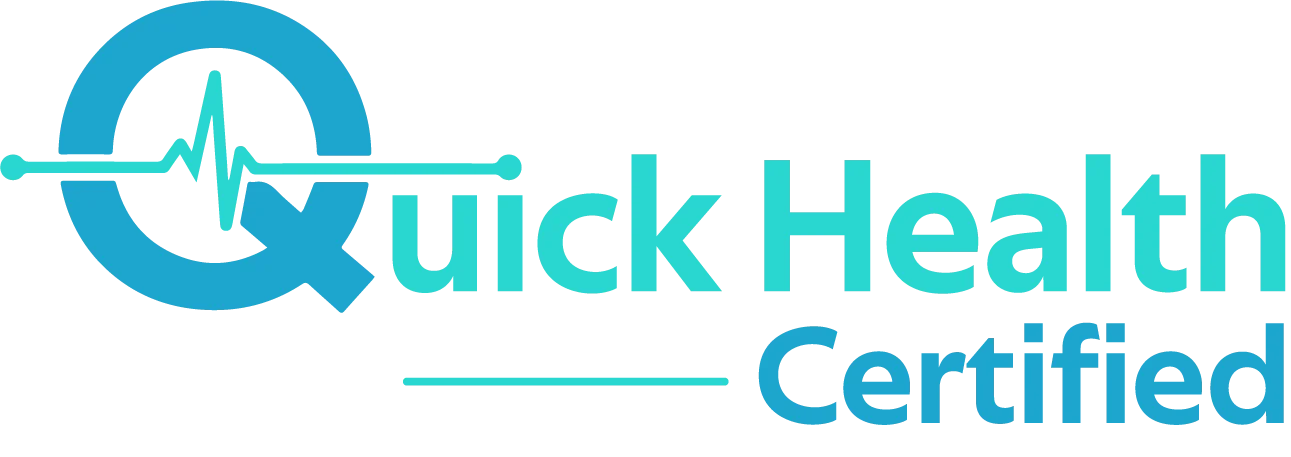Mon-Fri 9am to 6pm CST
by John Doe
31-July-2024

Medical Billing and Coding Job Duties: In-Depth Guide
In the daily life of any bustling hospital or healthcare center, where doctors and nurses are focused on patient care, there's an important behind-the-scenes process going on making sure that diagnoses and its related services are properly documented and the healthcare provider is compensated.
This process is managed by medical billing and coding professionals. But what exactly happens behind the scenes and what do the job duties of medical billing and coding professionals include, and why are they so essential?
Learn all these things in this blog post.
What is Medical Billing and Coding?
At first glance, medical billing and coding might seem like something very complex. Let's clarify it.
Medical coding is, in simple terms, the translation of healthcare services, diagnoses, and procedures into codes that are understood by healthcare providers. These codes, primarily from the ICD (International Classification of Diseases) and CPT (Current Procedural Terminology) systems, create a universal language for healthcare providers and insurers.
Medical billing takes these codes to be understood for insurance claims and bills for patients. It's the bridge between healthcare providers and insurance companies, ensuring services are rightly compensated.
Together, these jobs make sure the revenue cycle of the healthcare system doesn’t stop, bridging the gap between providers and payers.
And this is where the aspect of medical billing and coding come in.

Medical Billing and Coding Specialist Job Description
While there are numerous sets of codes a medical coder needs to be familiar with, but for the sake of this post we’ll only put our attention to these two:
- Reviewing Patient Records Evaluating clinical documents to determine the appropriate codes.
- Assigning Codes: Using ICD and CPT systems to assign the appropriate codes as per the diagnoses and procedures.
- Preparing and Submitting Claims: Compiling coded data into claims for insurance companies.
- Compliance: Adhering to healthcare regulations to prevent fraud and errors.
- Managing Rejected claims: Addressing issues with denied claims.
- Patient Billing and Support: Handling patients’ billing queries and clarifying any and all billing concerns.
Medical Billing Duties and Responsibilities
Delving deeper into the billing side:
- Claim Submission:Crafting and sending claims to insurers based on codes provided through a medical coder.
- Payment Record:Recording incoming payments from insurers and patients.
- Patient Invoicing:Generating bills for services not covered by insurance.
- Compliance: Ensuring all billing practices align with current healthcare laws.
For instance, imagine a billing specialist who notices a claim was denied because of a missing modifier (i.e. the number after the code) in the CPT code.
Now their job is to identify and correct the error, resubmit the claim, and make sure the provider gets paid.
Medical Coding Duties and Responsibilities
The coding front, on the other hand involves duties like:
- Code Assignment:Using ICD and CPT codes to classify medical diagnoses and procedures
- Documentation Review: Ensuring medical records are complete and coding is accurate.
- Audits: Conducting internal reviews to identify and rectify errors.
- Collaboration: Working with healthcare providers to clarify unclear documentation.
For example, a medical coder’s day-to-day job may include reviewing a patient’s chart and determine what the standard code is for a particular diagnosis. If a coder wrongly classifies a diagnosis with an incorrect ICD code, it can lead to denied claims, resulting in payment delays to the healthcare provider.
Must-have skills and qualifications for medical coders and billers
To excel as a billing and coding specialist, professionals need the following skills:
- Attention to Detail :Making sure every code and bill generated is error-free.
- Analytical Skills : Interpreting complex medical information for coding.
- Technical Proficiency :Know-how of electronic health records (EHRs) and billing software.
- Know-how and understanding of Medical Terminology : Understanding medical terms to link the correct code with the relevant procedure or diagnosis.
- Communication Skills :Interacting with healthcare providers, insurance companies, and patients.

How to Gain Experience in Medical Billing and Coding
Breaking into the medical billing and coding field requires educational + practical experience which includes the following:
- Formal Education: Get enrolled in associate/bachelors’ degree programs that offer comprehensive training in medical billing and coding. Or take the online route and go for more convenient options like medical billing and coding bootcamp from reputable platforms.
- Certification: Obtain certifications like the CPC (Certified Professional Coder) to authenticate your skills and knowledge.
- Internships: Participate in internships or externships to gain hands-on experience in real-world settings.
- Entry-Level Positions: Start in roles such as medical billing clerk or coding assistant to gain real-life experience.
Salary Expectations for Medical Billers and Coders
For anyone looking for medical billers’ and coders’ job description needs to be aware of how much money does billing and coding make an individual
Well, the salaries in medical billing and coding can vary based on factors such as location, experience, level of education, and certifications (if any). For example, a certified coder in states like California may earn a chunk more than a non-certified coder in a rural area, showing the impact of location and the need for certifications
But regardless, according to the U.S. Bureau of Labor Statistics, the median annual wage for medical records specialists, which includes medical billers and coders, was $48,780 as of May 2023.
Common Challenges Faced by Medical Billing and Coding Professionals
Keeping Up with constantly-changing regulations
Denied Claims
Workload
Healthcare regulations are, let’s just say, quite numerous and ever-changing. Therefore, one has to constantly not only keep up with them but also remember which ones are in effect and which aren’t. And that is something not very enjoyable.
Even minor errors can lead to claim denials or legal issues, and therefore, medical coders and billers are quite often seen handling rejections and resubmissions, either on the patient’s behalf and sometime on the insurers, and this can be time-consuming and, at times, frustrating.
High patient volumes can lead to burnout if not managed effectively. With a wave of patients coming in daily, medical coders and billers have to constantly keep up with the sometimes-never-ending horde which can sometimes lead to a physical or mental burnout.
The Future of Medical Billing and Coding
With advancements in healthcare technology, the future of medical billing and coding is promising, because the healthcare landscape is ever-evolving, too.
Use of technology, such as electronic health records, are reshaping how medical billing and coding specialists operate. And staying up-to-date with these changes is quite helpful for staying ahead in this field.
Conclusion
The world of medical billing and coding is more than just numbers and codes; it's about confirming healthcare providers are compensated for their work and that patients get the care they came for.
It's a field that demands precision, attention to detail, and individuals who are willing to give a go at continuous learning.
At Quick Health Certified, we understand the importance of this profession. And that’s why our self-paced, online healthcare courses – including the Medical Billing and Coding Bootcamp – offer proper coursework to equip you with knowledge needed to excel in this industry.
What do you think? Ready to begin your journey as a medical biller or coder?
FAQs
Let's Meet
Please provide us your email address and we'll connect you with a member of our admission team.
Recent Posts
Allied Health in the Rearview Mirror:
What have we Learned over past 10 Years?
30-Jan-2024
Allied Health in the Rearview Mirror:
What have we Learned over past 10 Years?
30-Jan-2024
Allied Health in the Rearview Mirror:
What have we Learned over past 10 Years?
30-Jan-2024
Allied Health in the Rearview Mirror:
What have we Learned over past 10 Years?
30-Jan-2024
Allied Health in the Rearview Mirror:
What have we Learned over past 10 Years?
30-Jan-2024



 Chat
Chat